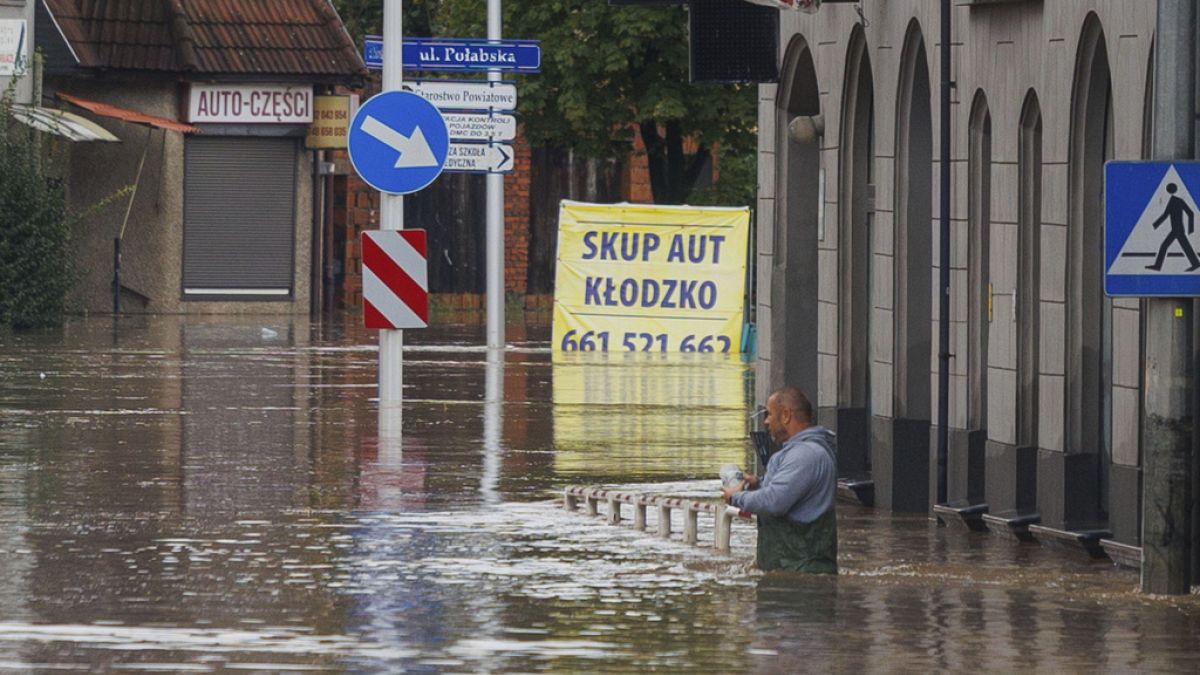Prime Minister Donald Tusk has declared a month-long state of natural disaster as Poland braces for further flooding.
Poland’s Prime Minister Donald Tusk says more than €1 billion of funding will be needed for relief efforts after widespread flooding has caused devastation in Poland.
His call for support came after days of heavy rainfall in Central Europe caused severe flooding in Poland, the Czech Republic, Slovakia, Romania and Austria.
Speaking at a joint news conference with the head of Great Orchestra of Christmas Charity charity Jerzy Owsiak in Wroclaw, Tusk said “it will be well above €1 billion, €1.5 billion. Not for Poland but in an emergency fund in the European Union, from which we will be able to draw means.”
He added that financial aid from the EU should be expected after the floods are over, and that Poland will have to apply to receive it.
Domestically, the Polish government will provide 1 billion zlotys (about €234 million) in immediate payouts to victims.
Tusk added that he expects an imminent visit from European Commission President Ursula von der Leyen in order to start making arrangements for relief funds.
Meanwhile, von der Leyen called for solidarity in Europe, saying, “this is something where we really have to, together as Europeans, to decide how we can manage and finance the growing need of adaptation and repair that we will see in the years to come.”
Flooding has swamped parts of Austria, the Czech Republic, Poland and Romania as a low-pressure system crossing the region has unleashed record-high rains for days.
At least 18 people have been killed in the floods so far, and large evacuations have taken place in Poland, the Czech Republic and Austria.
The flooding in Poland has burst dams and embankments while receding waters left streets covered in piles of debris and mud. It prompted a hospital in the southwestern Polish city of Nysa to evacuate about 40 patients.
Flooding expected to spread
Other places are now bracing for the flood waves to hit them, including Budapest, the Hungarian capital on the Danube, and Wrocław, a city in southwestern Poland on the Oder.
Hungary’s government of Prime Minister Viktor Orbán deployed soldiers to reinforce barriers along the Danube, and thousands of volunteers helped fill sandbags in dozens of riverside settlements.
In Budapest, authorities closed the city’s lower quays, which are expected to be breached by rising waters later in the day. The lower half of the city’s iconic Margaret Island was also closed.
In Wrocław, firefighters and soldiers spent the night using sandbags to reinforce river embankments. The city zoo, located along the Oder, appealed for volunteers to fill sandbags on Tuesday morning.
In Italy, warnings have been issued for heavy rainfall and intense storms, with the National Civil Protection Service warning this could lead to flooding and landslides.

